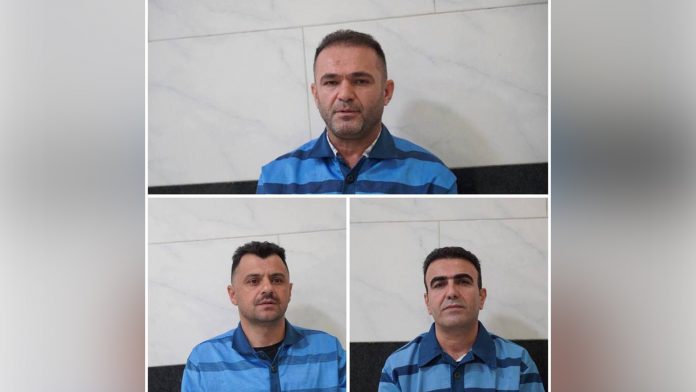Iran’s Shiite cleric leadership is working to stop a revolution in the country before it can start. The efforts come in the wake of Israel’s and the United States’ attacks on a number of the country’s nuclear facilities.
Following a fragile ceasefire with Israel, Iranian authorities have intensified an internal crackdown — executing three people accused of spying for Mossad and arresting more than 700 others on charges that range from espionage to political dissent.
The executed individuals were allegedly caught smuggling assassination equipment into the country, according to a news agency connected to the Islamic Revolutionary Guard Corps. State-affiliated Mizan News Agency described those arrested as “Mossad spies.”
The regime ordered increased security operations across the country, particularly in Kurdish regions, following the Israeli strikes. Military and militia units have increased street patrols, set up checkpoints and conducted home searches.
Why is Iran targeting Kurdish and opposition groups?
Officials cite threats from separatists, foreign intelligence agents and the exiled MEK, a leading Iranian opposition group. Kurdish activists say more than 500 people have been arrested since Israel’s June 13 airstrikes.
Analysts view the current response as consistent with previous crackdowns after mass protests, including the 2009 Green Movement and the 2022 “Woman, Life, Freedom” uprising.
Sanam Vakil of Chatham House told NBC News that the repression was “inevitable” and “prolonged,” reflecting a regime that historically acts to suppress unrest before it gains momentum.
Following the 1979 Islamic Revolution, Iran’s clerical leadership prioritized internal control with a state-wide security infrastructure. Supreme Leader Ayatollah Ali Khamenei has maintained this model, particularly in response to rhetoric from U.S. and Israeli leaders discussing possible regime change.
What actions are Iranian security forces taking?
Security forces have ramped up operations in minority regions, deploying IRGC and Basij units to conduct raids, search homes and block roads. Activists report that schools and civilian buildings have been used as staging grounds.
According to the Human Rights Activists News Agency, 705 people have been arrested since mid-June. Amnesty International warns that detainees, especially among ethnic minorities, face torture, coerced confessions and secret trials without legal safeguards.
Advocacy groups around the world have condemned the executions and mass detentions, calling them pretexts for silencing dissent. Critics warn of due process violations and say Iran’s use of capital punishment and sexual violence remains unchecked.
How does this reflect Iran’s record on human rights?
The current crackdown builds on years of systemic abuse. After violently suppressing the 2022 protests, Iranian authorities ramped up surveillance, imposed stricter veiling laws and increased executions. Amnesty has documented secret trials, rape and torture against detainees, including minors, with no independent investigations.

